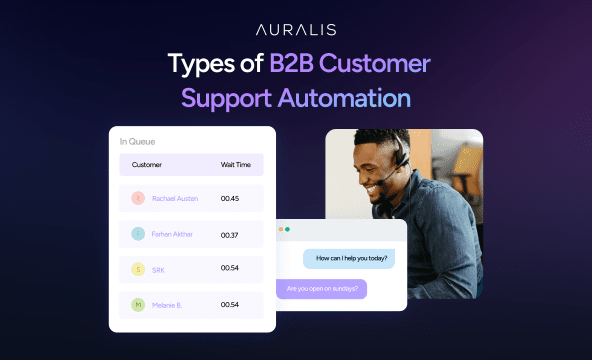B2B customer support automation
B2B customer support automation is transforming the way businesses interact with clients, enabling them to streamline their support processes and enhance the customer experience. By leveraging advanced technologies like artificial intelligence (AI), machine learning, and robotic process automation (RPA), businesses can automate repetitive tasks, improve response times, and reduce operational costs, all while providing superior service to their clients.
One of the key advantages of automating B2B customer support is the ability to handle large volumes of inquiries simultaneously. In a B2B environment, where clients often require quick, accurate, and tailored solutions, automation helps businesses respond promptly to support requests without sacrificing quality. AI-driven chatbots and virtual assistants can provide immediate answers to common questions, resolve issues related to orders, invoices, or service disruptions, and even assist with troubleshooting, all without human intervention.
B2B customers often demand highly personalized service, and automation can deliver this by integrating with Customer Relationship Management (CRM) systems. Automated systems can access and analyze a customer’s history, preferences, and previous interactions to provide personalized responses, recommendations, and solutions. This personalized approach helps businesses strengthen their relationships with clients, build trust, and foster long-term loyalty.
Automation also enables better ticket management and issue resolution in B2B support. AI systems can classify and prioritize tickets based on urgency, ensuring that the most critical issues are addressed first. For example, if a client faces a technical issue that could impact their business operations, the system can escalate the ticket to the appropriate expert quickly. This reduces wait times and improves service efficiency.
Furthermore, B2B customer support automation can improve the accuracy and consistency of responses. Automated systems follow predefined scripts and rules, ensuring that customers receive reliable, consistent, and error-free answers to their inquiries. This reduces the chances of miscommunication and improves the overall customer experience.
In addition, automation provides valuable insights into customer interactions, helping businesses analyze trends, pain points, and areas for improvement. By using data-driven insights, companies can optimize their support processes, identify common issues, and proactively address potential challenges before they escalate.
Another important benefit of B2B customer support automation is scalability. As businesses grow and expand, automation ensures that support operations can scale efficiently without requiring significant increases in human resources. Automated systems can manage increased support volumes during peak periods, allowing businesses to maintain a high level of service quality.
While automation is a powerful tool, it’s important to balance it with human support for more complex or sensitive issues. Automation should complement human agents, not replace them, ensuring that customers still receive the empathy, expertise, and nuanced understanding that only human agents can provide.
In summary, B2B customer support automation drives efficiency, enhances personalization, improves consistency, and provides valuable insights, all while reducing costs and improving service quality. By integrating automation into their customer support strategy, businesses can meet the growing demands of their clients and deliver exceptional service that drives satisfaction and loyalty.

- Articles
-
 Amy
Amy
- 7 min read
